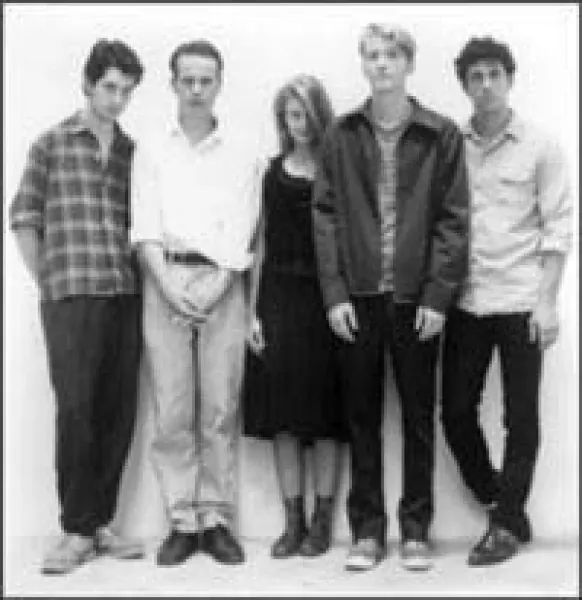
Camper Van Beethoven
Top Camper Van Beethoven albums
Top Camper Van Beethoven lyrics
(we Workers Do Not Understand) Modern Art
Camper Van BeethovenAll Her Favorite Fruit (Orchestral Version)
Camper Van BeethovenCamper Van Beethoven biography
At the time of their 1985 debut, Camper Van Beethoven's merging of punk, folk, ska, and world musics was truly a revelation. Self-described as "surrealist absurdist folk," the band formed in Santa Cruz, CA, after singer/songwriter David Lowery of Redlands, CA, with his dry humor and valley-boy voice (sometimes confused for a faux English accent), and boyhood friends Chris Molla and Chris Pedersen disbanded Box o' Laffs. Victor Krummenacher was added on ba** and soon they were joined by Greg Lisher (guitar) and Jonathan Segel (violins, keyboards, mandolin). It was Segel's violin that would prove to be the band's hallmark at a time when alternative rock had yet to be invented, and indie rock was still shy of roots music or traditional elements. br /br /The 1985 re-release of their debut, Telephone Free Landslide Victory, made the Top Ten in the 1986 Village Voice Pazz and Jop Poll, as did their second album, II & III, and Camper Van Beethoven, both released in 1986. On II & III, they went for a purer indie rock sound with touches of country, as evidenced in their "Sad Lovers Waltz" and their cover of Sonic Youth's "I Love Her All the Time." The band deftly switched modes from punk to ska to rock on alternate takes, but by this time Molla had left the fold. The third album, confusingly titled Camper Van Beethoven, continued the thread, but outstanding tracks like "Joe Stalin's Cadillac" were in the more straight-ahead indie rock vein. However, the band would consistently blow people's minds by tossing around things like a reverent version of Pink Floyd's "Interstellar Overdrive." For its Virgin Records debut, coinciding with the label's U.S. re-launch in 1988, the band took a more serious tack on Our Beloved Revolutionary Sweetheart, and the group that had once been confined to low budgets and small studio facilities stretched out perhaps a little too aggressively. br /br /For Key Lime Pie, Camper Van Beethoven's final release in 1989, the band took it as far as it could go. Morgan Fichter had replaced Segel by this time. Krummenacher, Pedersen, and Lisher continued to play together in what began as a side project in 1985, Monks of Doom, which turned into a full-time job for them, with four albums and an EP to their credit. Though no longer working as the Monks, the trio, along with Segel and Camper touring guitarist David Immergluck, continue to play together in various formations. Jonathan Segel released three albums as Hieronymous Firebrain from 1990-1994 and two with Jack & Jill for the Magnetic label. Krummenacher released a solo record, Out in the Heat, also for Magnetic, and continues to work with members of Tarnation in Lava. Immergluck and Fichter continue to tour and play sessions with bands of considerable renown (Counting Crows and Natalie Merchant respectively, among others); Lowery took some time off before forming Cracker, but didn't commingle with his former bandmates until reuniting with Krummenacher and Segel in late 1999 to a**emble the bizarre rarities collection Camper Van Beethoven Is Dead: Long Live Camper Van Beethoven. br /br /In 2002, the band released a CD that had been recorded on a lark back in 1987: a song-for-song cover version of Fleetwood Mac's Tusk album. Meanwhile, the original members had quietly reunited and begun work on a new batch of songs. They surfaced in 2004 with New Roman Times, a rock opera that told the story of a Texas teen who joined the military and then left to join an anti-government militia. ~ Denise Sullivan, All Music Guide
